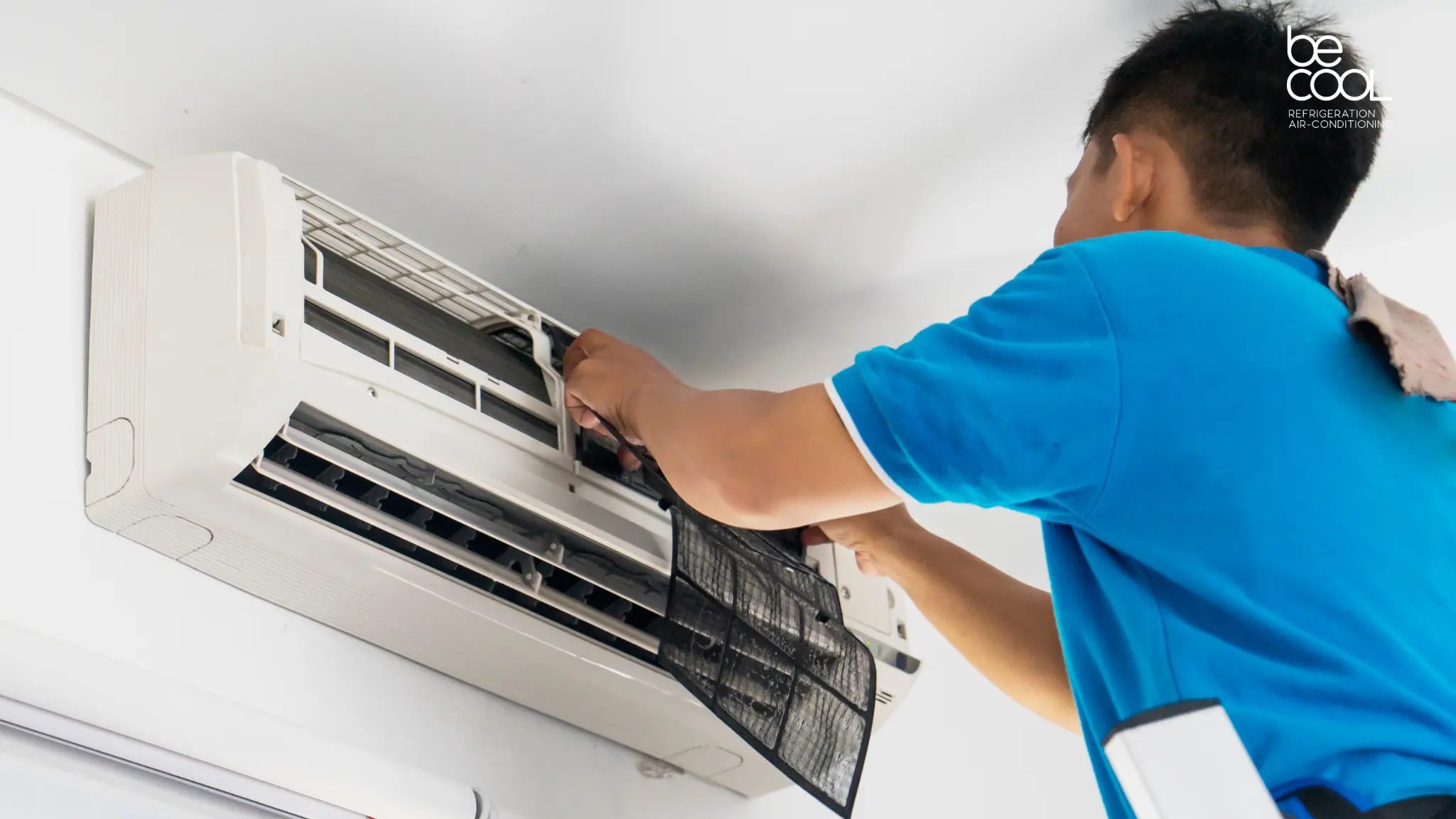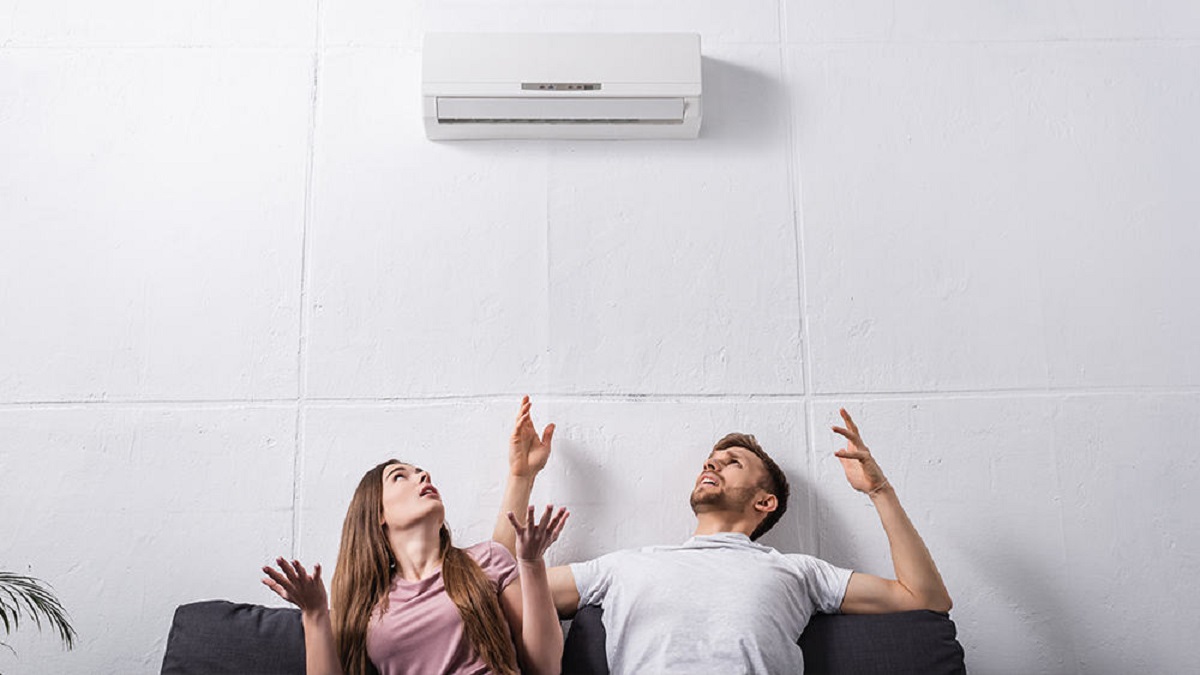Why Is My Air Conditioner Not Keeping Up

As summer temperatures soar, a malfunctioning air conditioner can quickly turn uncomfortable and potentially pose health risks. Understanding why your air conditioner isn't keeping up is the first step to resolving the issue, whether you're a homeowner, a budding HVAC technician, or a seasoned professional. This article explores common causes, diagnostic approaches, and career paths within the HVAC industry for those interested in mastering the intricacies of air conditioning systems.
Common Causes of Insufficient Cooling
Several factors can contribute to an air conditioner's inability to maintain a comfortable indoor temperature. Let's examine some of the most frequent culprits:
Refrigerant Leaks: The Silent Thief
Refrigerant is the lifeblood of your AC system, responsible for absorbing heat from inside your home and releasing it outdoors. A leak, even a small one, can significantly reduce the system's cooling capacity. Refrigerant leaks are often difficult to detect without specialized equipment, highlighting the importance of hiring a qualified technician. Symptoms include weak airflow, icing on the evaporator coil, and a hissing sound near the unit. Addressing refrigerant leaks properly requires not only repairing the leak but also recovering the existing refrigerant and recharging the system to the correct level, adhering to EPA regulations.
Dirty Air Filter: The Breathing Restriction
A clogged air filter restricts airflow, forcing the AC unit to work harder and reducing its efficiency. This can lead to overheating, compressor damage, and ultimately, inadequate cooling. Regularly replacing your air filter (typically every 1-3 months, depending on usage and air quality) is a simple yet crucial maintenance task. Neglecting this can reduce AC efficiency by 5-15%, costing you more on energy bills.
Dirty Coils: Heat Transfer Hindrance
The evaporator coil (inside) and condenser coil (outside) are responsible for heat transfer. If these coils are dirty, their ability to absorb and release heat is compromised. The evaporator coil can become dirty due to the air filter not doing its job well enough, while the condenser coil can collect dirt, leaves, and debris from the outdoor environment. Regular cleaning of these coils can significantly improve your AC's performance. This cleaning often requires specialized coil cleaners and techniques, reinforcing the need for professional HVAC services.
Blocked or Damaged Ductwork: The Distribution Disruptor
Damaged or poorly sealed ductwork can leak cooled air into unconditioned spaces like attics or crawl spaces, reducing the amount of cool air reaching the intended rooms. According to the EPA, duct leakage can account for up to 30% of total cooling energy consumption. Sealing and insulating ductwork is crucial for maximizing cooling efficiency and minimizing energy waste. Inspecting and repairing ductwork is a specialized skill within the HVAC trade.
Compressor Issues: The Heart of the Problem
The compressor is the engine of your AC system, responsible for circulating refrigerant. A failing compressor can significantly reduce cooling capacity or even cause the system to shut down entirely. Compressor problems can be caused by overheating, electrical issues, or refrigerant problems. Replacing a compressor is a major repair that often requires specialized tools and knowledge. The lifespan of a compressor can vary but is often around 10-15 years with proper maintenance.
Incorrect Thermostat Settings: The User Error
Sometimes, the simplest explanation is the correct one. Ensure your thermostat is set to the desired temperature and is in the correct mode (cool). Also, consider the thermostat's location. If it's in direct sunlight or near a heat source, it may not accurately reflect the overall room temperature. Programmable thermostats can also contribute to issues if they aren’t correctly programmed.
Diagnostic Approaches for HVAC Technicians
For HVAC technicians, diagnosing AC problems requires a systematic approach. Here’s a typical workflow:
- Initial Assessment: Gather information from the client regarding the symptoms and history of the system.
- Visual Inspection: Check for obvious issues like dirty filters, blocked coils, or damaged ductwork.
- Pressure Readings: Measure refrigerant pressures to identify potential leaks or compressor issues.
- Temperature Measurements: Use a thermometer to measure supply and return air temperatures to assess cooling performance.
- Electrical Testing: Check electrical components like the compressor, fan motors, and capacitors.
- Leak Detection: Use specialized leak detection equipment to pinpoint refrigerant leaks.
Modern HVAC systems increasingly incorporate electronic controls and sensors, requiring technicians to be proficient in using diagnostic tools and interpreting error codes. Continuous learning and staying up-to-date with the latest technologies are essential for success in the field.
HVAC Career Paths, Certifications, and Job Outlook
The HVAC industry offers a diverse range of career paths, from entry-level installer to specialized service technician to design engineer. Here's a glimpse into some common roles and the requirements:
Entry-Level Installer/Technician
These roles typically involve assisting experienced technicians with installing and maintaining HVAC systems. A high school diploma or GED is usually required, along with some vocational training. Starting salaries range from $35,000 to $45,000 per year.
HVAC Service Technician
Service technicians are responsible for diagnosing and repairing HVAC systems. They need a strong understanding of electrical and mechanical systems, as well as excellent troubleshooting skills. NATE (North American Technician Excellence) certification is highly valued and can lead to higher earning potential. Salaries typically range from $45,000 to $70,000 per year, depending on experience and location.
HVAC Design Engineer
Design engineers are responsible for designing and specifying HVAC systems for new buildings and renovations. They need a bachelor's degree in mechanical engineering and a thorough understanding of building codes and energy efficiency standards. Salaries typically range from $70,000 to $100,000+ per year.
Essential Certifications
Several certifications can enhance your career prospects in the HVAC industry:
- EPA Section 608 Certification: Required for handling refrigerants. There are different levels of certification depending on the type of equipment being serviced.
- NATE Certification: Demonstrates competency in specific areas of HVAC service and installation.
- HVAC Excellence Certification: Another respected certification program that validates technical skills.
Job Outlook and Salary Ranges
The job outlook for HVAC technicians is excellent. The Bureau of Labor Statistics projects a growth rate of approximately 5% over the next decade, driven by increasing demand for energy-efficient HVAC systems and the need to replace aging equipment. The median annual wage for HVAC technicians was $51,390 in May 2021. However, experienced technicians with specialized skills and certifications can earn significantly more. Location also plays a role in salary potential, with higher-cost areas often offering higher wages.
Example Career Path:
John Doe started as an entry-level installer after completing a vocational training program. He obtained his EPA 608 certification and gained experience working on various types of HVAC systems. After several years, he pursued NATE certification and became a lead service technician, specializing in commercial HVAC systems. He now earns over $75,000 per year and is considering pursuing a degree in mechanical engineering to advance to a design engineer role.
Staying Ahead in the HVAC Industry
The HVAC industry is constantly evolving with new technologies and regulations. To stay ahead, HVAC professionals must commit to continuous learning. This includes:
- Attending industry conferences and workshops.
- Reading trade publications and technical manuals.
- Completing online courses and training programs.
- Staying up-to-date on building codes and energy efficiency standards.
By investing in their skills and knowledge, HVAC professionals can ensure a successful and rewarding career.
Conclusion
Troubleshooting an air conditioner that isn't keeping up involves understanding the underlying causes and employing systematic diagnostic techniques. Whether you are a homeowner looking to understand your HVAC system better, or an HVAC professional seeking to enhance your skills, a dedication to learning and staying current with industry best practices is crucial. The HVAC field offers rewarding career opportunities for those who are willing to invest in their skills and knowledge, with ample opportunities for advancement and specialized expertise. From troubleshooting refrigerant leaks to mastering energy-efficient designs, the HVAC industry is vital to maintaining comfortable and healthy indoor environments.










